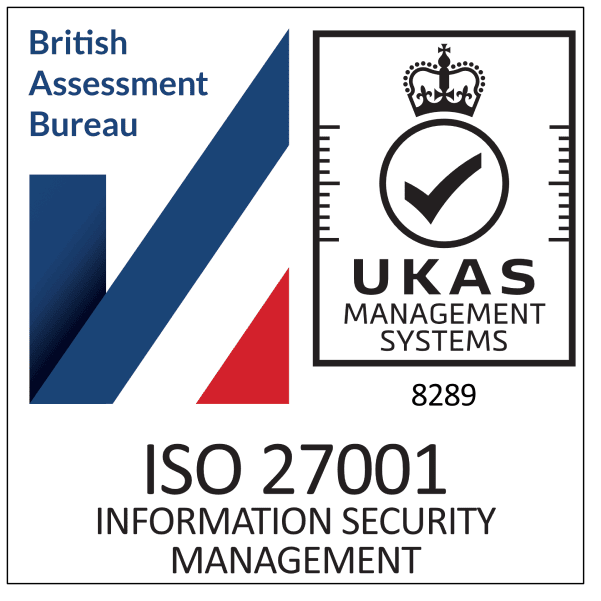In the intricate realm of event organization, mastering the nuances of budgeting can spell triumph or disaster. Did you know that effective budget management is often the distinguishing factor between successful and failed events? Consider this your comprehensive guide to a successful event budget.
The Importance of Budgeting for an Event
Organizing a successful B2B event requires meticulous planning and attention to detail, with one of the key elements being budgeting. Mapping out a budget is pivotal to all event planning stages, helping balance creative desires with pragmatic realities while ensuring commitment to financial goals. A well-planned budget is crucial for making informed decisions and ensuring your event’s success. It’s essential to choose the right tool for budgeting. While traditional methods like Excel are common, modern event management software offers a more efficient and error-free approach.
A well-crafted event budget accounts for every probable expense, from venue rental to marketing, and allows for unexpected costs. It’s your blueprint for astute financial decisions, guiding you to a successful event. Consistency in budget management from the start is key. This includes determining the budget based on factors like company size, event goals, scope, and location.
Determine Your Event Budget
Align your Event Budget with your Objectives

The first step in determining your event budget is to define the goals and objectives of your event. A networking event might necessitate a more substantial allocation for a larger venue and catering versus a product launch aiming for a high-impact marketing campaign. That is why event goals guide budget allocation. Remember, budgeting is a collaborative process that requires understanding market costs and the price of planning an event.
With this in mind, it is imperative to ask yourself questions that will lay the groundwork for clear and precise objectives.
Begin by asking yourself:
Why is this event being organized? Whether it serves the purpose of product launching, fostering networking, celebrating milestones, or promoting a cause, discerning the alignment of the event with your organization’s overarching mission is essential. Each distinct purpose will steer the planning towards different event types.
What is your target audience? Identifying your target audience is paramount for the success of your event. A deep comprehension of the demographics and interests of your intended attendees empowers you to tailor the event to meet their specific needs and expectations.
What message do you want to share? Craft a coherent message that harmonizes with your brand’s values when shaping your event. Define a central theme and key message that resonate with your brand’s ethos.
Finally, it is crucial to determine how the Return on Investment (ROI) of this event will be measured. Optimize your event budget by identifying the key performance indicators (KPIs) determining the success of your event and implement tools and processes to track and analyze these metrics effectively.
Create a Detailed Event Plan
Once your event objectives are clearly defined, the next step is to meticulously plan every detail, leaving nothing to chance. Consider every facet comprehensively: venue selection, catering arrangements, marketing strategies, communication plans, entertainment options, decoration themes, staffing requirements, contingencies (which usually represent 10 to 20% of the total budget) and so on. An Event Manager should meticulously contemplate these elements during the planning phase.
By exploring the specifics of each aspect, you can formulate estimated budgets for individual components, leading to the creation of a comprehensive event budget. This approach ensures a thorough and organized financial overview for the entire event.
An event’s budget is dynamic and will change as planning gets underway. It’s a guideline for success, requiring regular adjustments.
While your event budget sets the financial framework, it should be flexible and adaptive. Indeed, regular budget checks are essential: keep updating expenditures and adjusting projections. This ongoing financial health assessment empowers responsiveness to inevitable change.
Maximize your Event Budget
Event location
Efficient management of your event budget commences with the strategic selection of a venue that aligns seamlessly with your event objectives. Consider the number of attendees and the desired event layout to tailor your choice of venue accordingly.
The right venue need not be the priciest one; it’s one fitting your event needs and budget. Moreover, be vigilant about hidden costs, which are the bane of event venue budgeting – request a detailed cost structure from potential venues to avoid surprise fees for service, setup, AV equipment, or Internet access.
Additionally, don’t hesitate to engage in proactive negotiations with the chosen venue. Securing favorable terms and pricing can further optimize your event budget, allowing you to allocate resources more efficiently and potentially unlock additional benefits that contribute to the overall success of your event.
Consider the cost of an event planner in your budget, which varies based on experience and scope. Event planners add tremendous value in managing the ‘invisible workload’ of events.
Event Marketing and Promotion
Still leaning on the objectives and target audience you set up for your event, elaborate a marketing strategy to promote your event to the right people.
Nowadays, digital platforms are preferred for their cost-effective outreach. Impressions on multiple digital platforms can multiply reach while optimizing spending. By utilizing social media, email campaigns, online advertising, you will be able to reach your target audience and attract more people to your event. Furthermore, you will be able to analyze audience behavior through metrics to channel funds effectively, while enhancing brand visibility and attendee engagement. Thus making the most of your event budget.
Use your Event Budget for Event Organization Tools

Leveraging event planning software is essential for accurate tracking, managing, and reporting, allowing you to optimize budget utilization. These tools streamline the planning process and improve communication among team members, making them indispensable for an effective event budget.
- Trello and Asana support efficient collaboration by providing task management features that help with logistics and event coordination. Both tools help monitor progress and ensure tasks are completed on time.
- Eventbrite simplifies the registration and ticketing process, providing a comprehensive system for promoting your event, managing ticket sales, and analyzing attendee data. Additionally, it helps you market your event on social media and can seamlessly integrate with other event management platforms.
- Lodago Events provides a comprehensive solution for efficient meeting management during your event. The platform consolidates all meeting information into a single, user-friendly interface, facilitating seamless meeting coordination. From tracking meeting attendance to real-time Key Performance Indicators (KPIs) and enabling one-click meeting bookings, Lodago Events streamlines the entire meeting process, enhancing the overall event experience.
Strategic Collaborations for an Optimized Event Budget
Collaborations and sponsorships can be highly beneficial when budgeting events. Strategic collaborations for an optimized event budget involve forming purposeful partnerships and alliances with various entities to enhance the financial efficiency and overall success of your event. Working with like-minded organizations and companies can bring valuable resources and provide a platform to promote their brand.
These collaborations may extend to co-promotion, shared marketing efforts, or mutual support in executing specific aspects of the event. The key is to align with partners whose interests and objectives complement yours, creating a synergistic relationship that not only minimizes financial burdens but also contributes to the overall effectiveness and impact of your event. Reach out to potential sponsors offering tailored offerings to showcase their products or services at your event, emphasizing mutual benefits. In-kind sponsorships can also help cover expenses, such as audio-visual equipment, promotional materials, or even food and beverages at the event.
Cut Event Expenses
Regularly reviewing and adjusting your budget is essential for staying on track and managing unexpected expenses. Trimming unnecessary costs is integral to maintaining a cost-effective event budget. Here are some smart ways to reduce expenses:
- Negotiate with Vendors: Engage in negotiations with vendors, venues, and service providers. Seek competitive bids and explore potential discounts or package deals to secure the best value for your budget.
- Consider Off-Peak Timing: Opt for off-peak days or times for your event to benefit from lower rates offered by venues and vendors during less busy periods.
- Embrace Digital Communication: Favor digital invites, social media advertisements, and email campaigns over costly printed materials.
- Utilize In-House Resources: Make the most of in-house resources for tasks like registration, ushering, and event setup instead of hiring additional staff, ensuring a more budget-friendly approach.
- Volunteer Assistance: Leverage volunteer support for tasks that don’t require specialized skills. This not only reduces the need for paid staff but also contributes to a more cost-effective execution of the event.
- Explore Sponsorship Opportunities: Actively explore sponsorship opportunities with relevant companies or organizations. In-kind sponsorships can provide valuable goods or services, contributing to cost reduction.
- Hybrid Event Approach: Consider adopting a hybrid event format, combining in-person and online components. This approach not only saves on venue and catering costs but also extends your event’s reach to a broader audience.
- Continuous Budget Monitoring: Continuously monitor your budget throughout the planning process. Address unexpected expenses promptly by assessing alternative solutions or reallocating funds from less critical areas.
- Post-Event Analysis: Conduct a comprehensive post-event analysis to identify areas where costs could be further optimized in future events. Learning from these experiences enhances overall budget efficiency and effectiveness.
Post-Event Analysis : An integral step in event budgeting
Post-event analysis helps identify areas for future budget optimization and contributes to a clearer ROI calculation. Analyze your event’s financial performance and gather participant feedback through post-event surveys and revenue analysis. Lessons learned from past successes and challenges will lead to increasingly cost-effective future events.
- Identify which aspects of your event generated the highest return on investment (ROI) and where budget adjustments could have been made.
- Evaluate attendee satisfaction, using feedback to improve future event experiences and budget allocation.
- Analyze vendor performance and assess the value they provided in comparison to their cost. Utilize this information to negotiate contracts in the future.
Simplify the entire process, whether for the overall event or just post-event meetings analysis, with the help of tools like those mentioned earlier in this article. Lodago Events offers a comprehensive post-event report on all your team meetings, enabling detailed analysis and empowering you to devise an even more effective strategy for your upcoming events.
From Event Budget Cuts to Event Success
The most important aspect of budgeting is its continuous nature and flexibility. Regular updates and adjustments are vital for the success of the event budgeting process. In conclusion, achieving cost-effective events through meticulous event budgeting plays a significant role in the overall success of your event planning endeavors. By outlining every detail, from aligning your budget with your event objectives to determining the main spending categories, you will lay the foundation for a well-planned financial framework.
Throughout the blog, essential aspects of event budgeting have been discussed, including leveraging event organization tools, and forming strategic collaborations. These practices can aid in streamlining your planning process and help you make informed decisions, ultimately leading to cost-effective events and better accommodation of your resources.







